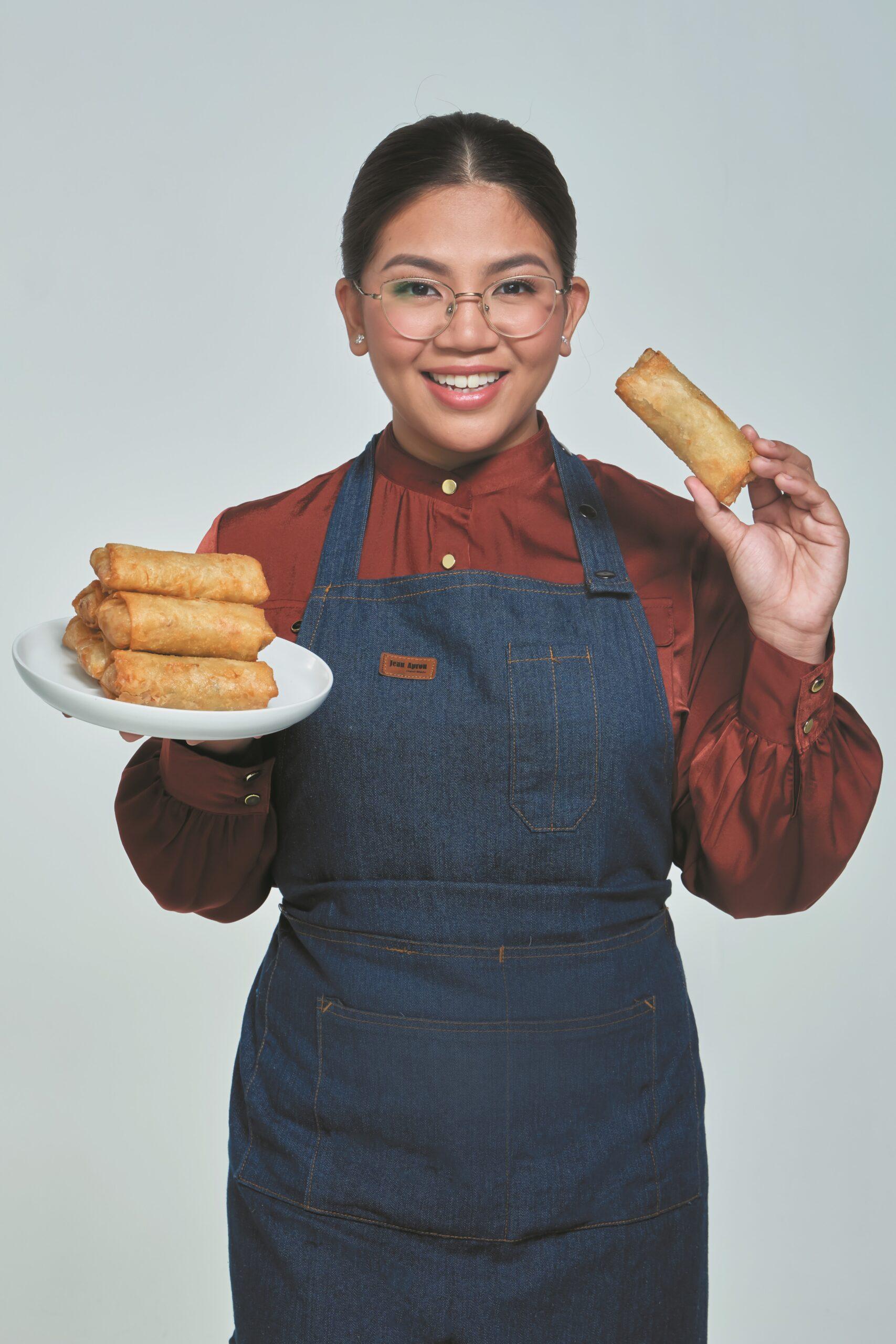Abi’s talent has earned her a James Beard nomination, a spot in Forbes 30 Under 30 Class of 2024, and TikTok’s Creator of the Year for Food. Her culinary creativity shines through in every recipe, blending flavors that honor her roots while pushing the boundaries of Filipino food in the international scene.
In a playful interview with Asian Journal at Alice’s Tea Cup on the Upper West Side, known for its tea and scones, Abi Marquez, dubbed as the “Lumpia Queen,” spilled the tea—literally and figuratively. The conversation, held in the cozy, whimsical setting of the café, traced her unplanned and unexpected rise to internet fame.
As she laughed and dug into scones, she confessed that she had no idea what most of her awards really meant. “Honestly, I don’t know what half of these awards are, but I’m so thankful! What matters most to me is that Filipino food is finally being recognized,” she said with a mischievous grin. While the interview was lighthearted, with jokes and playful detours, one thing was clear: Abi’s mission is serious, and her heart is fully in championing Filipino cuisine at every opportunity.
Abi’s rise to prominence as a digital content creator and food influencer didn’t happen overnight. With over a billion views on TikTok and a global following of four million across platforms, she has become a key figure in bringing Filipino food to the forefront of the culinary world. Her journey began at home in the Philippines, where she grew up making lumpia with her family—a simple act that later became the foundation of her brand.

“I never thought lumpia would be my thing,” Abi reflected during the interview, “but the more I posted, the more people loved it.” She started creating content while studying Hotel, Restaurant, and Institution Management at the University of the Philippines, viewing it as a hobby and a way to document her culinary experiments.
Little did she know that these humble beginnings would lead her to fame and, eventually, to being featured in Forbes 30 Under 30 for her culinary influence. By her senior year, Abi was not only juggling her studies but also building a burgeoning online brand. She successfully pitched content creation as her practicum, proving to her professors that the digital space could be a legitimate and profitable career path.
Balancing school and content creation wasn’t easy. “I had to convince my school that content creation was a legitimate career path. It wasn’t just about making videos; it was about strategy, marketing, and storytelling,” she says. Abi’s commitment paid off when she graduated magna cum laude in 2022, all while securing her first million pesos in earnings through brand deals and endorsements.
Abi’s content is a mix of food experimentation, personal stories, and humor, and it’s this combination that has endeared her to millions of fans. Her videos, often filmed in her modest kitchen, show her preparing lumpia in various creative ways—ranging from traditional pork lumpia to more unconventional versions like “s’mores lumpia. “The messy kitchen, the playful experiments, that’s all real. People connect to that,” Abi reflects. It’s this genuine approach that has seen her videos go viral time and time again, and it’s earned her accolades such as the People’s Voice Award at the 28th Webby Awards and a 2024 James Beard Award nomination.
Beyond the numbers and the fame, what sets Abi apart is her deep commitment to her cultural roots. For Abi, content creation is more than just a way to earn a living; it’s a platform to showcase the richness and diversity of Filipino cuisine. “People think Filipino food is just adobo or lumpia, but there’s so much more,” she emphasizes. Through her content, Abi is on a mission to introduce global audiences to lesser-known Filipino dishes and ingredients, from the tangy sinigang to the sweet purple yam, ube. Her videos often feature a mix of traditional and modern interpretations of Filipino food, aiming to make the cuisine more accessible to those unfamiliar with it.

Abi’s influence extends beyond the digital world. She is currently part of a culinary tour across New York, sponsored by the California Milk Advisory Board, where she documents how Filipino food can be adapted to incorporate local ingredients. This cross-cultural exploration is a natural extension of her online persona, as” and change with “Abi’s presence has expanded significantly within the Filipino diaspora. During our conversation, she shared a few memorable moments of being recognized by fellow Filipinos. Once, while visiting Yosemite Park, she was greeted by kababayans, and during her current trip, she had a similar experience at Hudson Yards, where followers from Albany approached her to say hello. With that she continues to push the boundaries of what Filipino food can be in a globalized world. “We need to fill modern spaces with Filipino culture, from ube to kalamansi,” Abi insists, referring to key Filipino ingredients that she believes deserve a place in mainstream cuisine.
Abi’s journey is far from over. She has plans to release a cookbook that will blend Filipino flavors with international influences, further cementing her place as a culinary innovator. She’s also exploring opportunities in traditional media, eyeing television as the next platform to conquer. But no matter how far she goes, Abi remains grounded in her original mission: to share the joy of Filipino food with the world. “It’s about staying relevant, evolving, and continuing to make Filipino food relatable to everyone,” she says.
For Abi Marquez, the road to success has been paved with lumpia—and a lot of hard work. Her story is one of resilience, creativity, and a deep connection to her heritage. In a digital landscape where trends change rapidly, Abi has managed to create something lasting: a cultural movement that’s not just about food, but about family, tradition, and the Filipino spirit. And as she continues to grow her brand and reach new audiences, one thing is clear: the “Lumpia Queen” is just getting started.







